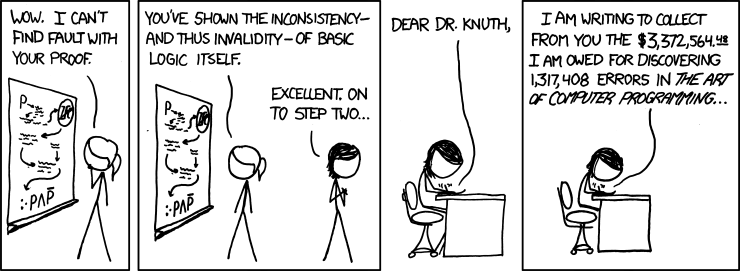For “He is wise — G-d possesses the quality of wisdom — but not with a wisdom that is known to us created beings,” because He and His wisdom are one, and as Maimonides writes, “He is Knowledge and simultaneously the Knower... Who knows and comprehends — through the ”Knowledge“...; {and He is that which is Known}” — G-d is also the subject of knowledge and comprehension, as Maimonides concludes.
This means that G-d’s wisdom and comprehension are totally different from man’s. In human comprehension there are three separate and distinct components: (a) the person’s soul, the “knower” and possessor of knowledge; (b) the power of intellect and comprehension — the “knowledge” — by which the person knows; (c) the subject of the knowledge — the “known” — such as a law in the Mishnah or a discussion in the Gemara which is apprehended and known.
Concerning G-d’s wisdom, however, Maimonides states: “He is the ‘Knowledge’, the ‘Knower’, and the ‘Known’.” G-d is the means of comprehension — the “Knowledge,” and at the same time is He Who understands — the “Knower”, and is also that which is understood — the “Known”.
Maimonides continues: “And this is not within the power of any man to comprehend clearly”; as it is written, “Can you find and understand G-d by searching?” And it is also written, “For My thoughts are not your thoughts,” {says G-d}; and consequently “your” {human} thoughts cannot possibly comprehend “My” thoughts.
Many Jewish philosophers rejected Maimonides‘ description of G-d as “the Knower, the Knowledge and the Known.” In fact they considered it erroneous to ascribe to G-d a description of any sort — even of the lofty level of intellect of which Maimonides writes — inasmuch as description implies limitation, and G-d is inherently limitless.
The Alter Rebbe therefore points out in this note that the Kabbalists agreed with Maimonides, with the qualification that his concept does not apply to G-d’s essence. For His essence is truly infinite — even higher than the inscrutable level of “Knowledge” that Maimonides refers to. Regarding His essence, those who disagree with Maimonides are correct in maintaining that G-d cannot be defined in terms of “knowledge”, since He transcends it infinitely. Only after G-d limits the infinite light of His essence through the process of tzimtzum (progressive contractions), and thereby assumes the attribute of Chochmah (“Wisdom”

, — only then can it be said of G-d that He is the “Knower, Knowledge and Known.”




